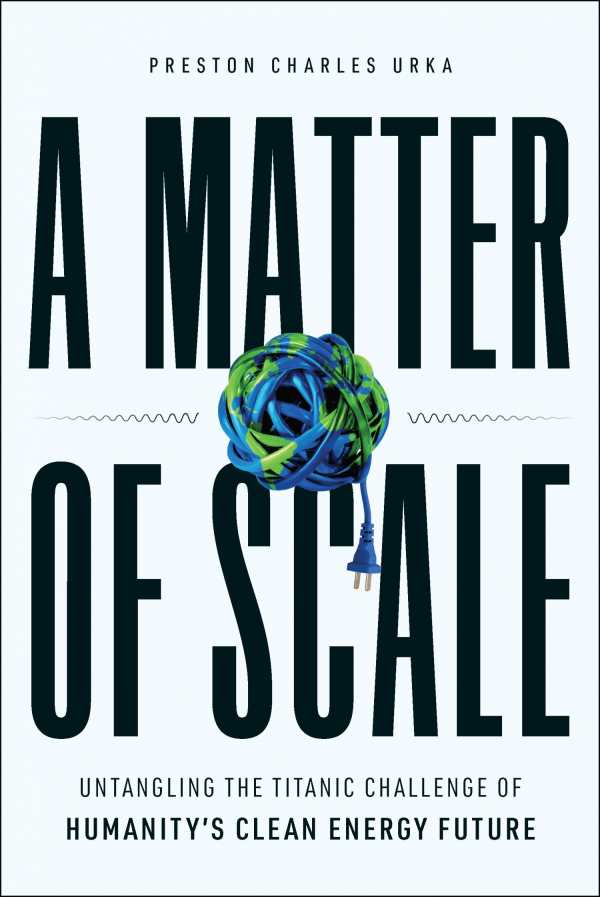A Matter of Scale
Untangling the Titanic Challenge of Humanity's Clean Energy Future
A Matter of Scale is a beginner’s guide to low-carbon energy sources and the role they may play in a more environmentally friendly future.
In his science book A Matter of Scale, Preston Charles Urka lays out his case for ramping up production of nuclear and other low-carbon energy sources.
With the awareness that climate change is a global problem that grows more urgent every year, and that electricity is the largest consumer of power, Urka notes that it is essential to find low-carbon power sources that can support the world’s electricity needs. He argues that the solution to the energy problem is not to use less energy, but to use more energy in more efficient ways.
From this perspective, all of the low-carbon energy sources that are available at present—hydro power, nuclear, wind, geothermal, solar photovoltaic, and concentrated solar—should play a role, but nuclear has the greatest potential benefits and the lowest risks. Only by implementing solutions, says Urka, can humanity survive to create a more equitable world for everyone.
Urka wastes no time in dispelling a reassuring but dangerous myth: using energy-efficient appliances and installing solar panels on residential rooftops may lower an individual’s energy bill, but it does nothing to lower greenhouse gas emissions or to stop the destructive effects of climate change. The problem is exponentially larger than such small-scale solutions can handle. Urka supplies a bird’s-eye view of the issue, and is deliberate about excluding minute details to keep the book accessible to beginners. Extensive appendices include more detailed information on topics like energy storage and recent developments in nuclear plant technology.
The book focuses on solutions that can be deployed now; as Urka states, the fate of the world is too important to risk on miraculous technologies that may or may not be developed in time. He states his arguments in a clear manner and supports them with a variety of sources. He also confronts and dismantles dissenting opinions as he weighs the pros and cons of low-carbon power sources. Each power source is judged based on multiple factors, all of which relate to how much they can contribute to the primary goal of lowering carbon emissions; all other goals, so far as the text is concerned, can wait until Earth is out of immediate danger. Graphs and charts compare the benefits, capabilities, and drawbacks of the six featured energy sources.
The book’s focus is on the science of low-carbon power. Its information on how to pay for these technologies is brief; so is its coverage of the politics of implementing its proposed solutions. The book’s only political advice is to vote for science-friendly candidates—a perhaps insufficient personal goal in the face of the current global political climate. In some ways, however, such political and financial discussions are irrelevant: the book is convincing on the point that it is essential to reduce carbon emissions with speed, regardless of who objects.
A Matter of Scale is a beginner’s guide to low-carbon energy sources and the role they may play in a more environmentally friendly future.
Reviewed by
Eileen Gonzalez
Disclosure: This article is not an endorsement, but a review. The publisher of this book provided free copies of the book and paid a small fee to have their book reviewed by a professional reviewer. Foreword Reviews and Clarion Reviews make no guarantee that the publisher will receive a positive review. Foreword Magazine, Inc. is disclosing this in accordance with the Federal Trade Commission’s 16 CFR, Part 255.

